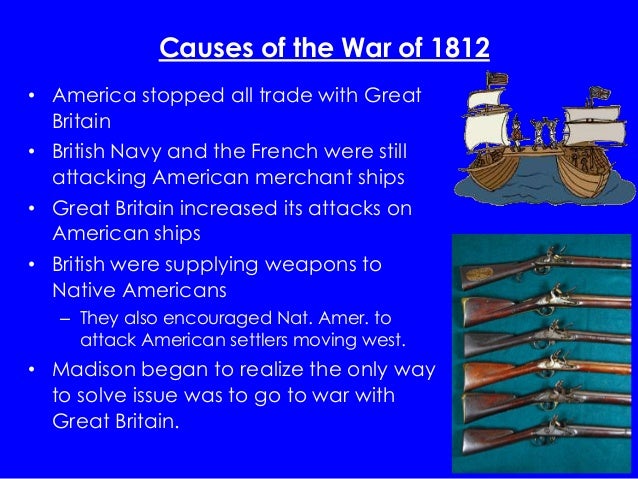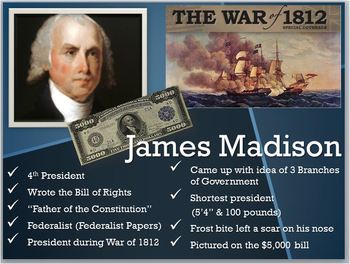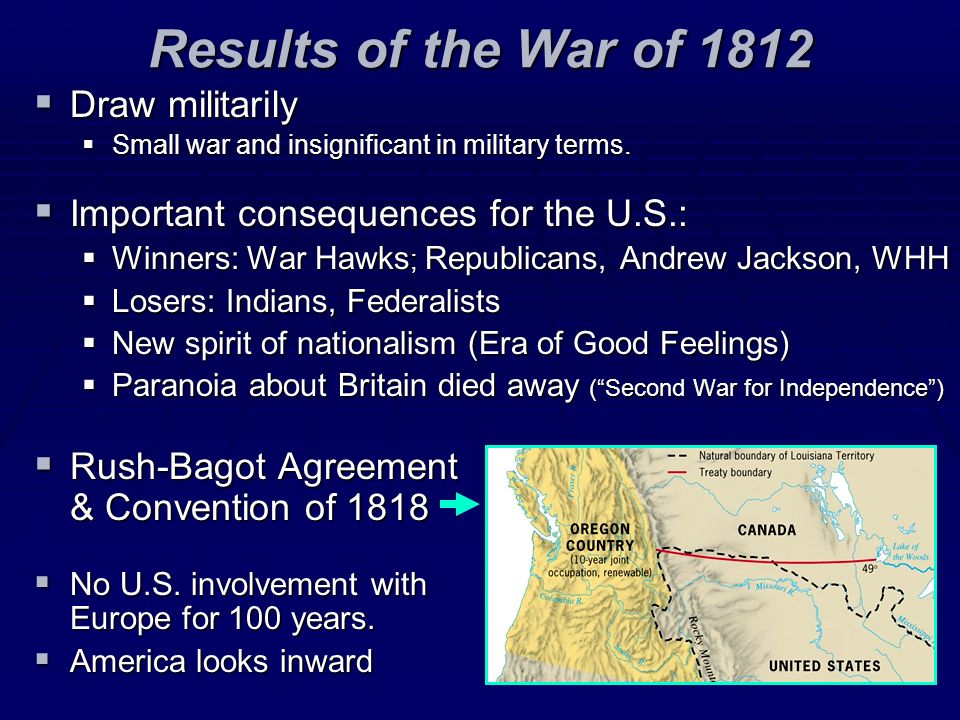On June 18, 1812 President James Madison signed the declaration of war on Great Britain just two days after Lord Castlereagh the Secretary of State for Foreign Affairs announced in Parliament that the Orders in Council would be suspended. How can this be? Madison had continuously stated that the Orders in Council was one the primary driver for war. In his 1811 state of the union address, Madison wrote that “we have seen that the British cabinet perseveres not only in withholding a remedy for other wrongs, so long and so loudly calling for it, but in the execution, brought home to the threshold of our territory, of measures which under existing circumstances have the character as well as the effect of war on our lawful commerce.”
In those days, news from across the ocean traveled very slowly. It wasn’t until August 12, that the President received news that the Orders had been repealed. This was over 50 days since war was declared, and just 3 days before the disastrous American defeat at the Surrender of Detroit. It was not nearly enough time for word to travel to the Generals on the battlefield. Even more surprising, the British had received news that the U.S. declared war before Madison learned of the repeal. The Declaration of War was issued on June 18, and Great Britain learned of it on July 29th. In response, the British ordered counter-measures with forbade English ships to sail except in convoys and restrained American ships in English ports. Thus, news of the reaction traveled faster than news of repeal, and each side saw the reaction as an act of war.
Now, in his 1812 state of the union address, Madison had to explain how it was that American was still at war with Great Britain. Indeed, there had already been some major battles up until this point in the upper Northwest (Detroit, Niagara). Madison started by explaining that he had made it very clear to Great Britain what the terms at which war could be avoided. These terms specifically required that the orders in council be repealed “as they affected the United States”, and that all American seamen should be discharged, and a stop be put to the impressment of sailors from American ships. Madison continued to justify his action. He explained that even though the repeal of the orders in council had occurred before the battles in the Northwest began, there was a blatant rejection of the suspension to the impressment of American sailors and the release of American Seamen. Madison urged Congress, that unless and until Great Britain gives into all three demands, it would be “unwise to relax our measures in any respect”.
“Anxious to abridge the evils from which a state of war can not be exempt, I lost no time after it was declared in conveying to the British Government the terms on which its progress might be arrested, without awaiting the delays of a formal and final pacification, and our charge’ d’affaires at London was at the same time authorized to agree to an armistice founded upon them. These terms required that the orders in council should be repealed as they affected the United States, without a revival of blockades violating acknowledged rules, and that there should be an immediate discharge of American sea men from British ships, and a stop to impressment from American ships, with an understanding that an exclusion of the sea men of each nation from the ships of the other should be stipulated, and that the armistice should be improved into a definitive and comprehensive adjustment of depending controversies.
Although a repeal of the orders susceptible of explanations meeting the views of this Government had taken place before this pacific advance was communicated to that of Great Britain, the advance was declined from an avowed repugnance to a suspension of the practice of impressments during the armistice, and without any intimation that the arrangement proposed WRT sea men would be accepted. Whether the subsequent communications from this Government, affording an occasion for reconsidering the subject on the part of Great Britain, will be viewed in a more favorable light or received in a more accommodating spirit remains to be known. It would be unwise to relax our measures in any respect on a presumption of such a result.”
One issue that he repeal of the Orders in Council while at war caused, was that a “considerable number of American vessels” were in England when the orders in council was repealed. These vessels were under the impression that trade with Great Britain would again be opened in the ports of America. Madison believed that this was an honest mistake and not an act of treason. Madison asked Congress to consider the proper course of action.
“There being reason to believe that the act prohibiting the acceptance of British licenses is not a sufficient guard against the use of them, for purposes favorable to the interests and views of the enemy, further provisions on that subject are highly important. Nor is it less so that penal enactments should be provided for cases of corrupt and perfidious intercourse with the enemy, not amounting to treason nor yet embraced by any statutory provisions.
A considerable number of American vessels which were in England when the revocation of the orders in council took place were laden with British manufactures under an erroneous impression that the non-importation act would immediately cease to operate, and have arrived in the United States. It did not appear proper to exercise on unforeseen cases of such magnitude the powers vested in the Treasury Department to mitigate forfeitures without previously affording to Congress an opportunity of making on the subject such provision as they may think proper. In their decision they will doubtless equally consult what is due to equitable considerations and to the public interest.”






